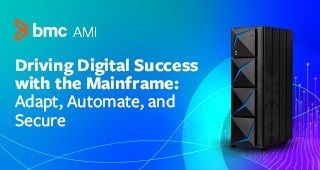Does a post-coronavirus world mean new opportunities to access and benefit from mainframe skills, and to develop the next generation of mainframers? I believe so. In a previous blog, I wrote about the pandemic’s impact on how mainframe services are delivered, moving from onsite to remote and home working. Another effect has been opening of a wider and deeper global talent pool in mainframes.
Our team has always worked globally, drawing on expertise in EMEA, the Americas and Asia Pacific to address whatever a client needs. It can still be difficult to identify and secure the right skills at the right time. The lockdown and home working, however, provided another dimension to our ability to find and utilize mainframe talent anywhere in the world. And clients were suddenly open to the notion of remote working because… well, that was the only option now. My previous blog expands on that.
We were talking to mainframers whose outlook was global but wanted to stay local, tapping into an even more diverse resource pool to benefit clients. It meant even more options to delivering key technical personnel that legislation insisted had to be recruited, trained and based in-country, for a government agency in the USA, or a client Switzerland. These new opportunities to identify and deliver resources coincided with increased demand for mainframe services. Indeed, as the BMC Annual Mainframe Survey 2020 made clear, the mainframe is now seen as an increasingly attractive hub for innovation. IBM reported that the majority global C-level execs are accelerating digital transformations—and that people and talent were critical to success.
The demand for mainframers continues, whether that means business as usual or delivering special projects; in job scheduling, workload automation, or any other area. Just look at the record volumes of online retail and payments during lockdown. PayPal, Amazon, eBay… all those transactions traversed a mainframe somewhere, and the platform coped just fine.
In broader business and IT terms, the tectonic plates are shifting. Our industry is changing and we have to be ready to meet the demands that will follow. In the new normal, we have to be able to secure the people and talent required to deliver, remotely, the operational scalability, flexibility and security that our clients expect. The skills shortage hasn’t gone away, even if we can be smarter (and cast our net wider) in finding the skills required. The bigger picture is about training the next generation. In fact, now is a good time for organizations to think about training, and properly get to grips with succession planning for their technical teams.
2020 saw a sea change in attitudes and approaches to remote teaching and learning (plus the obvious fact that travel budgets could now be better spent on investing in your people). Institutions became more inventive about how they engaged. In our business, we’ve run a successful Mainframer in Training (MIT) program for a number of years, and that’s all online now. I would not have been an instinctive advocate of this approach in the past but we’re learning from academia about how it can be done. Needs must when the devil drives, as Shakespeare almost said.
The young people coming through will be fully acclimatized to this style of learning. One of the biggest benefits of our MIT program is having mentors next to you, guiding and coaching. That’s happening remotely too, through screen sharing and desktop sharing. This is fine until we get to the blended training approach that I expect to emerge. And of course, with off-site remote support now the norm, this online training will stand the next generation in good stead for their careers to come.
The basic point is that while we all work in technology, this is really all about people, and trust. Our clients trust us to provide the trained people and expert services they need, when they need them. These were used to seeing us onsite, pen testing in person. We can’t do that right now, but they still trust us to deliver what they need. Our mainframe trainees trust us to give them the best experience we can, imparting the knowledge and skills they need to progress, to support their current and future employers. And our people and skills base have to be more flexible than ever, ready to pivot to deliver whatever is needed.
I spoke to a senior exec in a global bank recently. They had the usual issue of older mainframers retiring, but in their case the newer techies coming onboard were resistant to doing the “download, install and customize” day-to-day stuff. They wanted to do the more exciting work. Of course, we were delighted to step in and handle those mundane but all-too-essential tasks—not least because they provide superb foundations for trainees to become properly familiar with all aspects of mainframes BAU before specializing. I firmly believe the current situation should be seen as an opportunity for organizations to give the next generation the time, space and encouragement to grow and learn. Our own plans include bringing in a new and even larger cohort of trainees in 2021. I also have a feeling we’re going to need all those new people and that fresh thinking in the months and years ahead.







